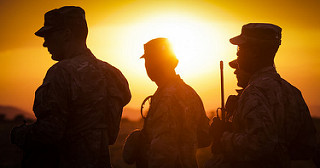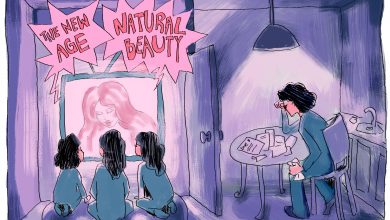How to be Pro-Veteran

Photo by Aaron Bratche via Flickr / Public Domain
For many patriotic or Americentric holidays, Americans often take the opportunity to criticize America’s history of colonization, white supremacy, and global violence that stem from its military-industrial complex. This Veteran’s Day, we should remember that in opposing the American military-industrial complex, we must remain pro-veteran.
There are many instances in which it is not possible to separate an individual from an institution. However, to conflate an individual veteran with the institutional, historical violence that the U.S. has committed would be irresponsible, especially when considering that some personnel have greater choice than others about enlisting. One can oppose missile strikes by the U.S. in Syria and still support veterans — both involve understanding flaws in the US military.
Understanding why Americans join the military helps clarify how we can best support them. Many enlist because of low socioeconomic status and lack of resources, and because U.S. military highly incentivizes enlisting for low-income individuals and those with little access to resources. Benefits of joining the military include enlistment bonuses, student loan repayment, and voluntary education programs. The GI Bill helps millions of veterans pay for undergraduate and graduate schools, amongst other programs. The military is an opportunity for individuals that would not otherwise be able to afford college or find consistent employment. For many, the military is their only opportunity.
Support for veterans in itself recognizes the flaws of a military-industrial complex. While the military has obvious negative impacts overseas, it also harms its personnel, leaving many rattled with PTSD, physically disabled, or even homeless — and often times without extensive support. In fact, 71% of female military personnel suffer from PTSD due to sexual assault that occurred within the military. Survivors of assault in the military rarely find the support that they need, with many instances simply being swept under the rug altogether.
Being pro-veteran means supporting and respecting military personnel and veterans not only as a cultural norm, but also in legislation. It means promoting quality healthcare, for both physical and mental care, and supporting resources that aid in the transition out of active duty. Having a “Support Our Troops” bumper sticker is not enough — words must translate into action. Political opposition to the violence and oppression of a military industrial complex is inherently pro-veteran. Additionally, this violence and oppression are not selective, impacting both political opponents and civilians overseas as well as its participants, all of whom deserve our support.
Opposition to supporting troops often is founded in misconceptions about military personnel, their personal beliefs about the military-industrial complex, their agency in joining, and the backgrounds from which they come. Statistics show us that the demographics of the military are changing within the U.S., with racial and ethnic minorities making up around 40% of the active-duty military in 2015. Black Americans in particular are overrepresented, making up 13% of the U.S. population ages 18-44, but 17% of active-duty military members. Clearly, the image of the middle class, white, heterosexual American is not representative of veterans or the military as a whole.
While we’re supporting individual personnel and veterans, we should remember to celebrate those who have served and are serving that America seems to have forgotten. Black Americans, for example, served in high numbers in World War II, while still forced into segregation. Despite Donald Trump’s attempted ban on transgender folks serving in the US military, studies show that they have been serving in the U.S. military as far back as the Civil War.
It is clear that in a variety of ways, American veterans deserve better from both the military and from the American people. When American institutions do not support those who are willing to lay down their lives simply because of their race, gender identity, sexuality, or other facet of identity, it is our responsibility to be pro-veteran.




